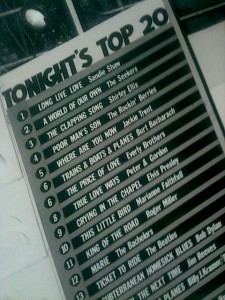In my last post, I noted how I had set myself the target of blogging every three weeks. So this one is early. But I’ve just achieved something, and I wanted to share it now!
I’ve taken a bit of a leap. Our school learner profile may well describe me as a ‘risk-taker’. Either way, I should get a merit sticker for my efforts I reckon!
An enforced lay off has given me the couple of hours I needed to do something I had been planning for a while; creating a ‘Badge System’. We set up a hashtag on Twitter for our school back in the Autumn term. It was inspired by the excellent #SISrocks hashtag and we called ours #BSJbytes. It has been ticking along nicely. Teachers share inspired moments of learning, links to pertinent articles, celebrations of achievement and observations from their daily experiences. We even used it as a backchannel during INSET days. It’s a great way to connect folk who are often physically separated on our fairly expansive campus.
 |
| http://www.visionair.nl/politiek-en-maatschappij/nederland/ openbadges-de-opvolger-van-universiteit-en-hogeschool/ |
But to take it to the next level, I wanted to recognise those folk who contributed to our community. I’d heard about ‘Badges’ and it intrigued me as a way of giving people the little push of extrinsic motivation needed to get them involved. Mozilla has developed an ‘Open Badge’ platform for anyone to use as a recognised format to award people’s achievement. Visit the site to check it out.
 |
| http://kstreem.com/2015/02/badgelist/ |
I have made use of Badgelist, a free community that allows you to easily set up a badge and create all the necessary elements to be able to award on to the Open Badge platform. It really is nowhere near a scary as it sounds. But it was definitely some new learning for me.
 There are currently seven #BSJbadges that anyone can earn. Just create a Badgelist account, join the #BSJbytes Open Learning Group and upload your evidence. Boom! You’re in. You can add the badge to your Open Badge ‘Backpack’ and display it on your social media.
There are currently seven #BSJbadges that anyone can earn. Just create a Badgelist account, join the #BSJbytes Open Learning Group and upload your evidence. Boom! You’re in. You can add the badge to your Open Badge ‘Backpack’ and display it on your social media. 
What more could you ask for??
Now the risk is, that nobody can be bothered to join in. But it is a risk I’m willing to take, after all, if it doesn’t take off, at least I have learnt that much!






